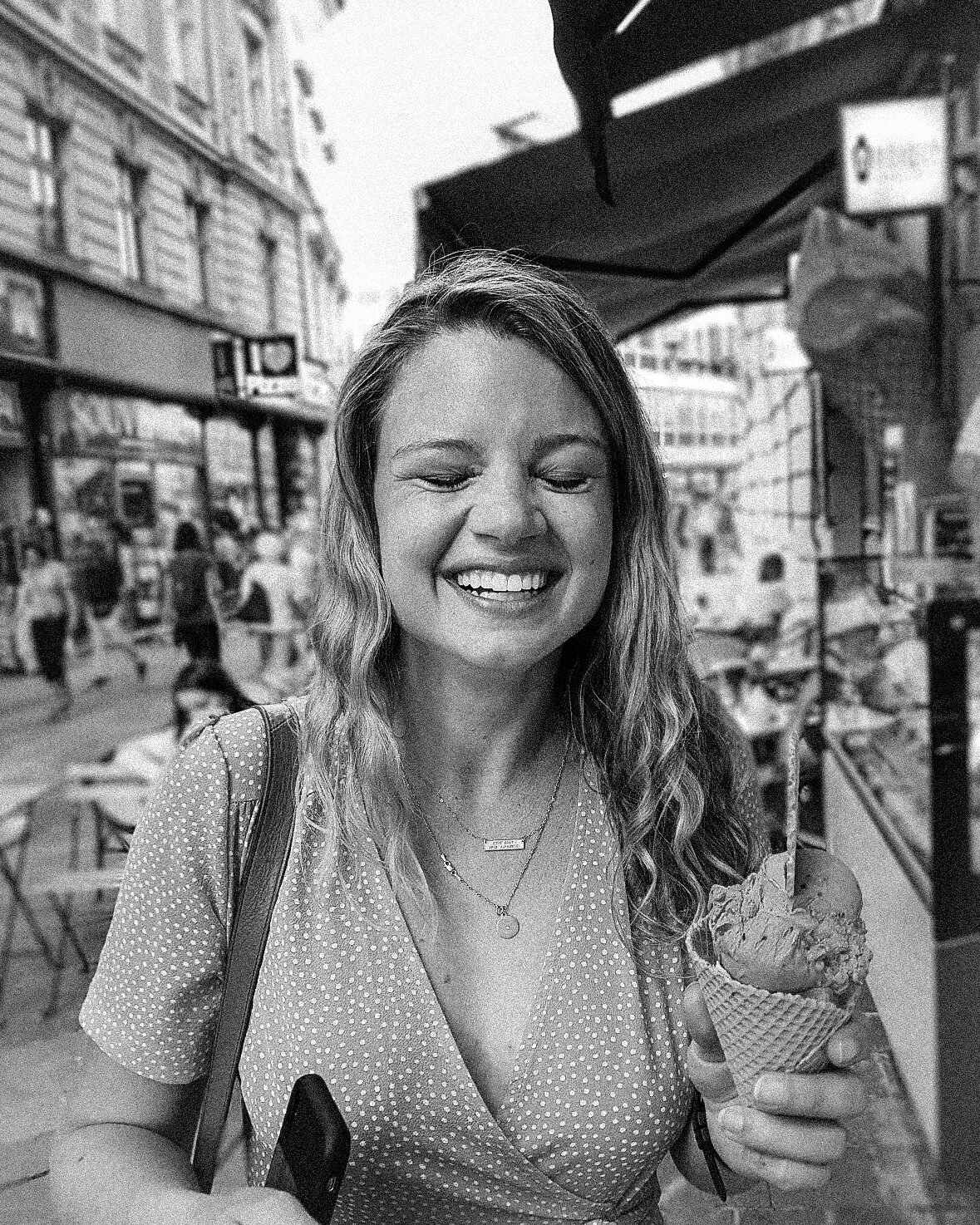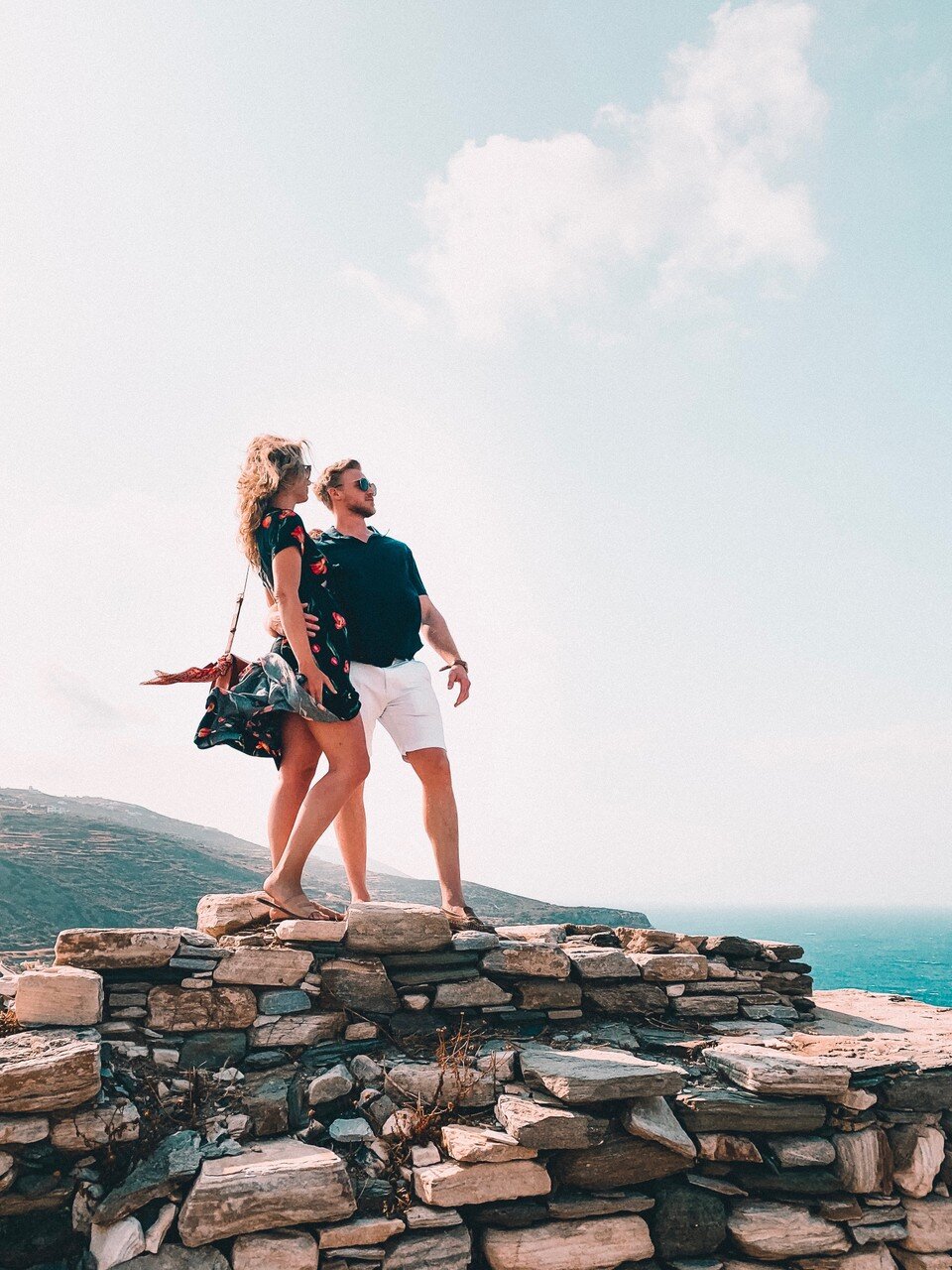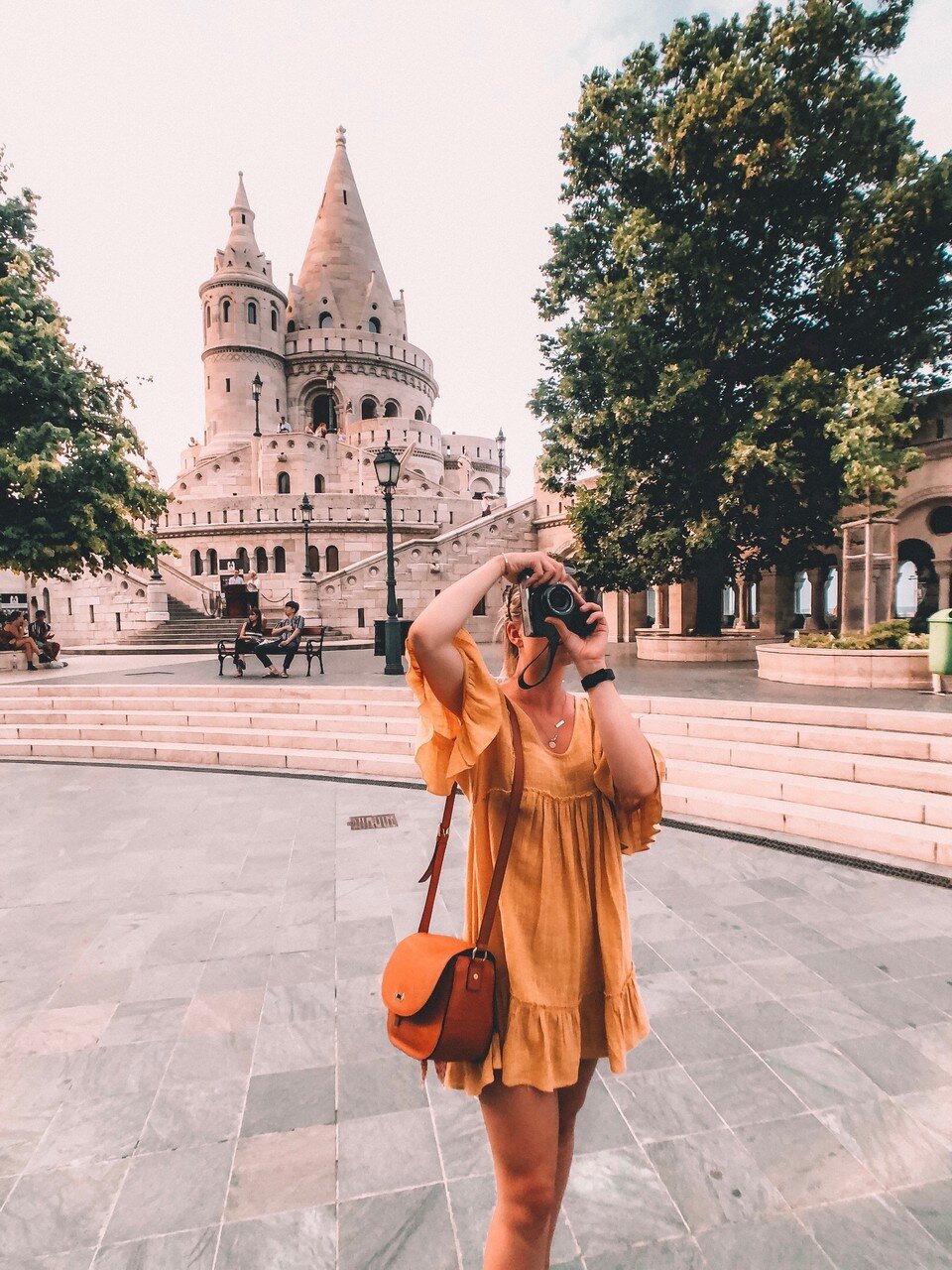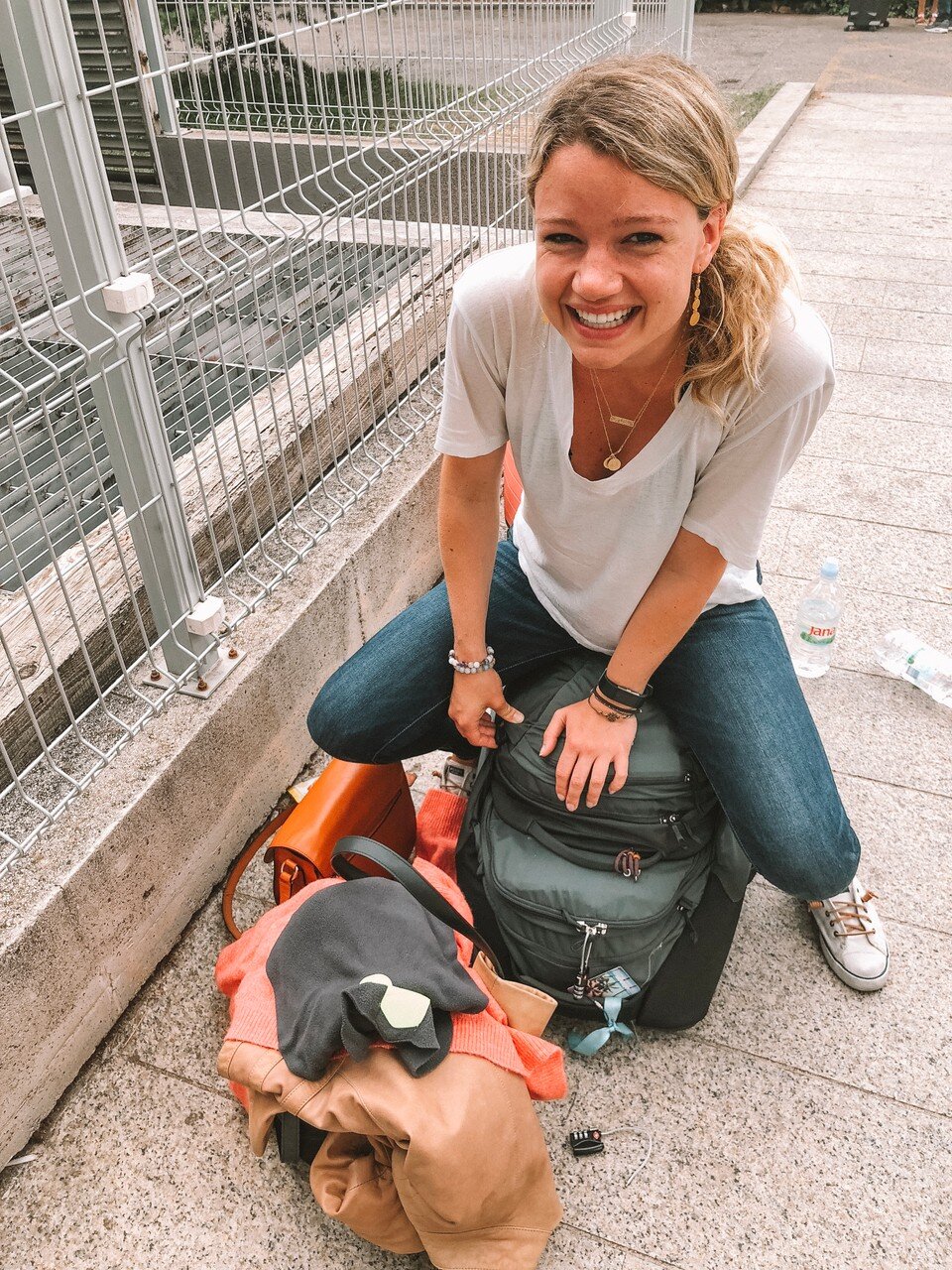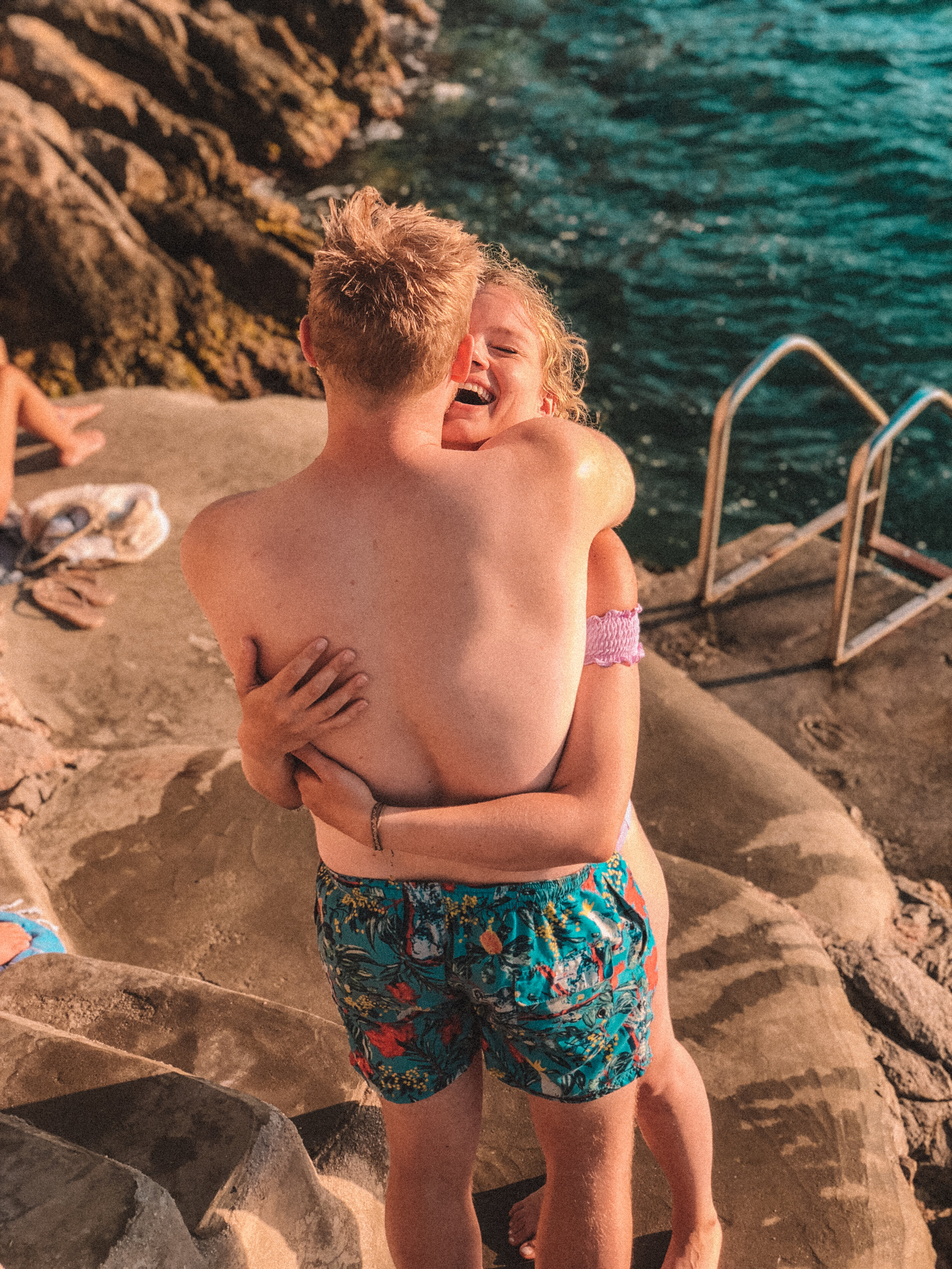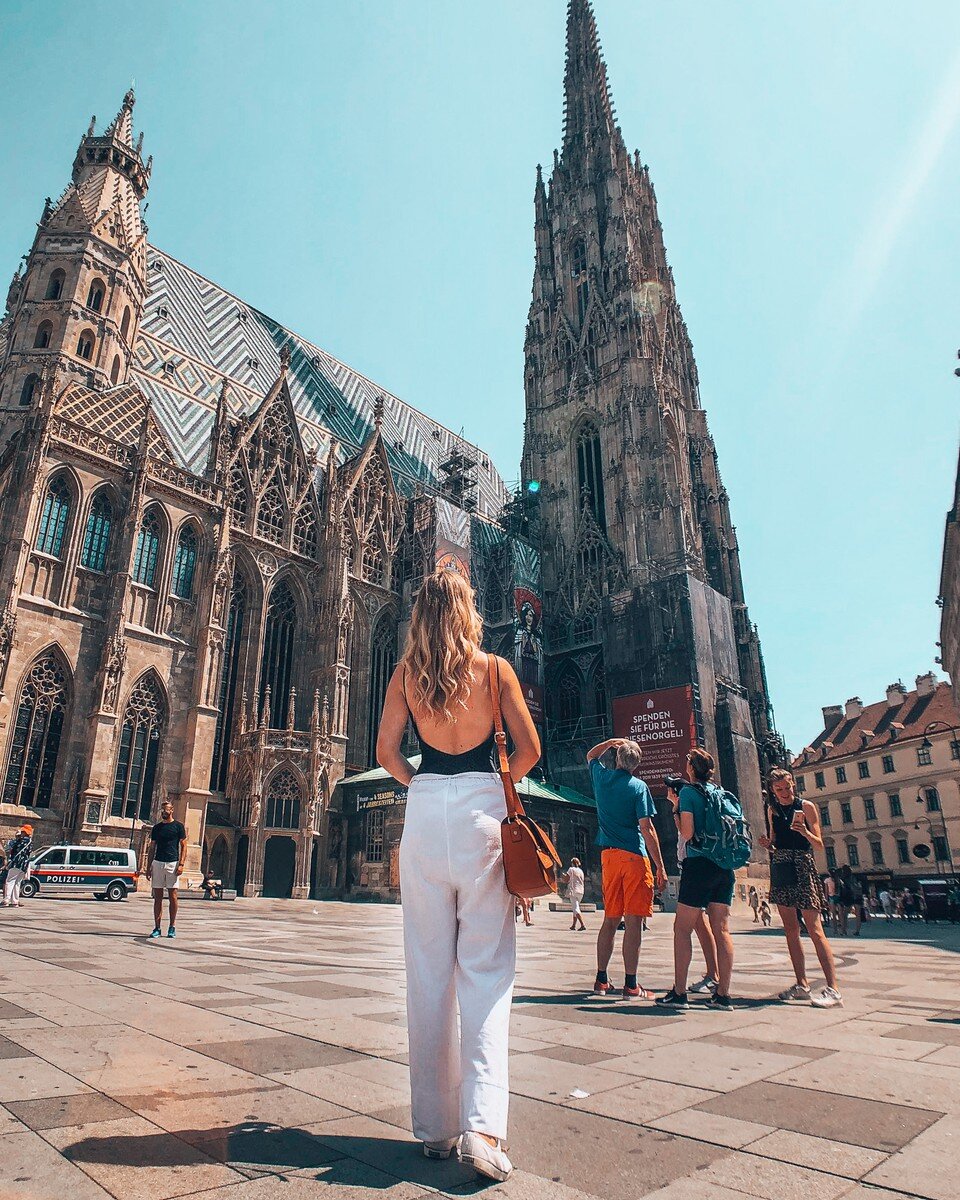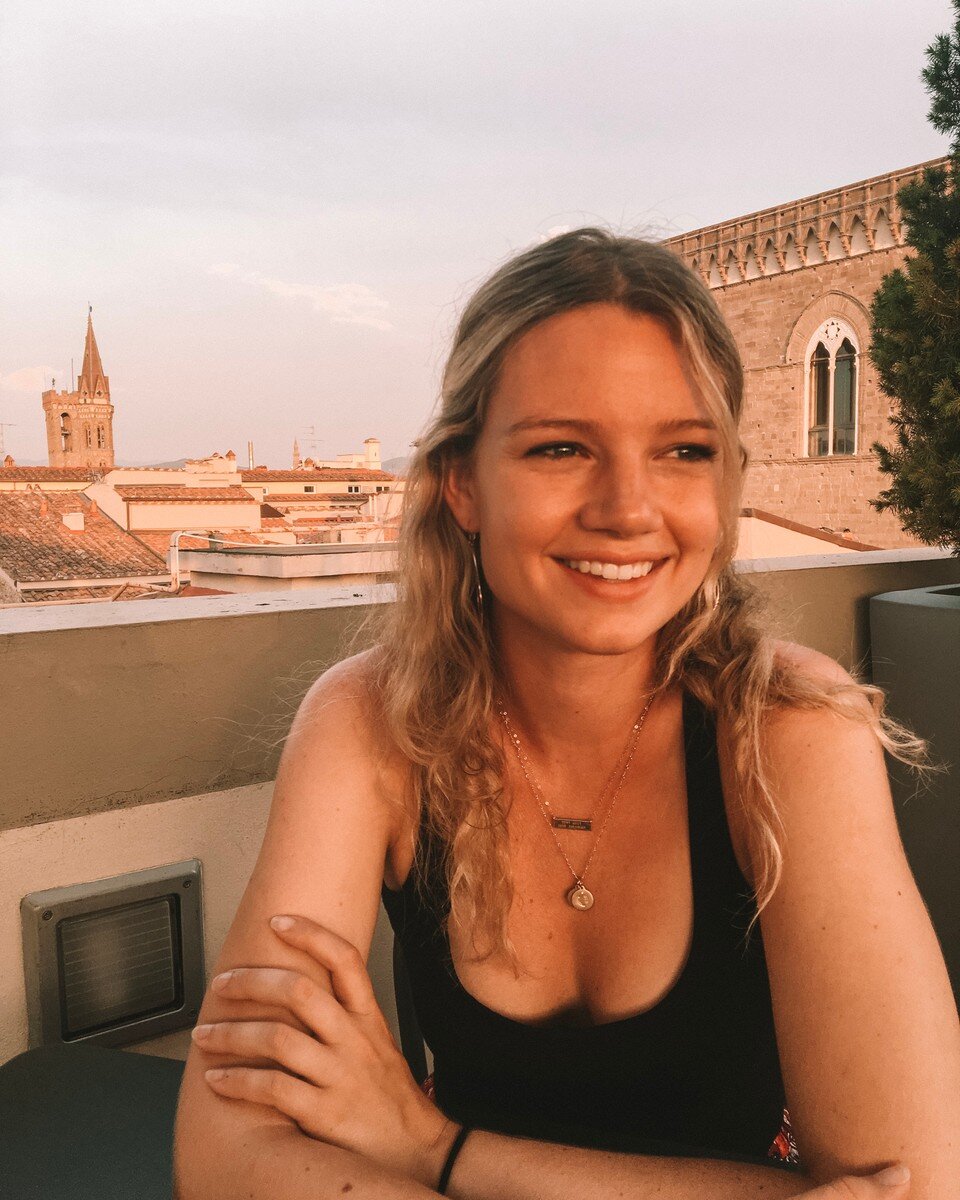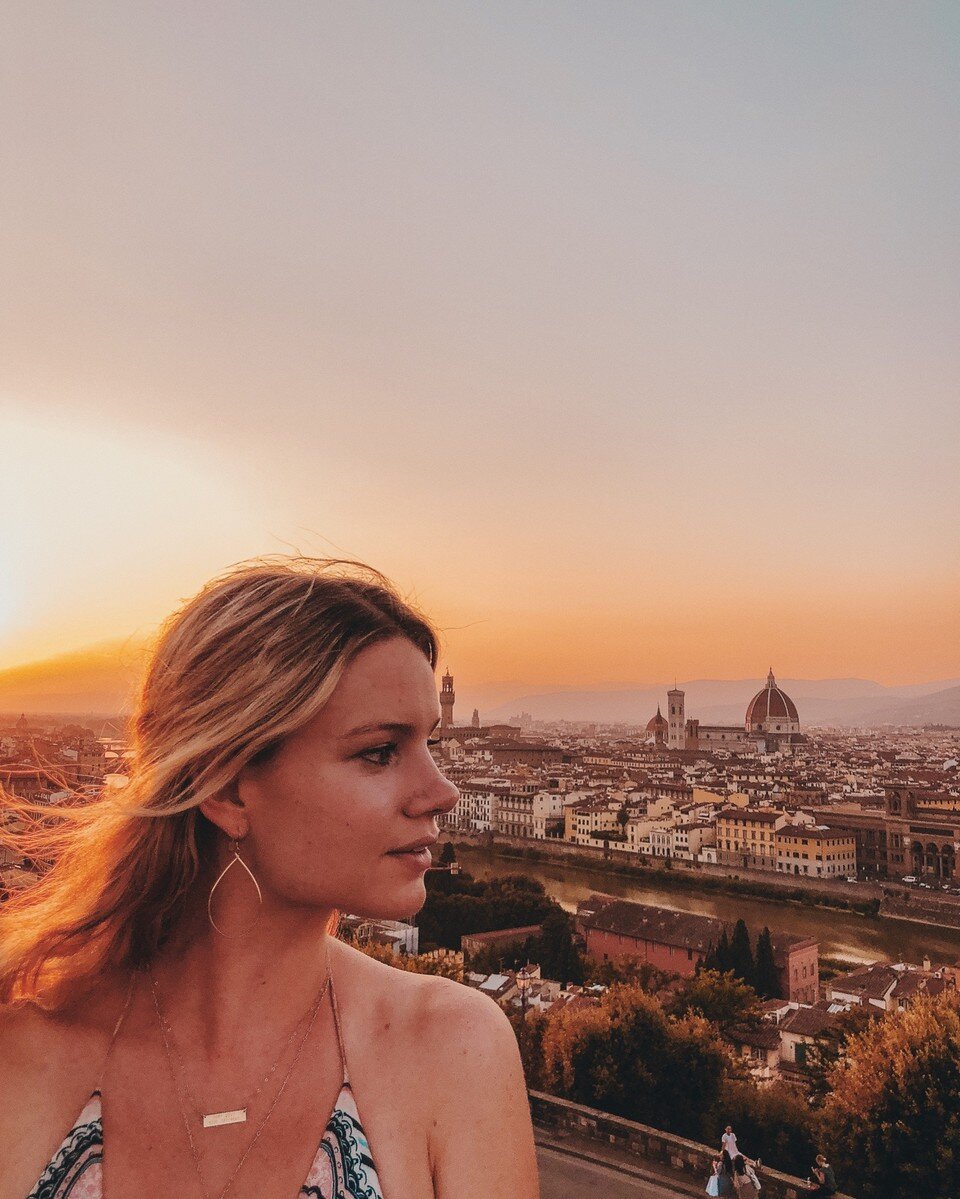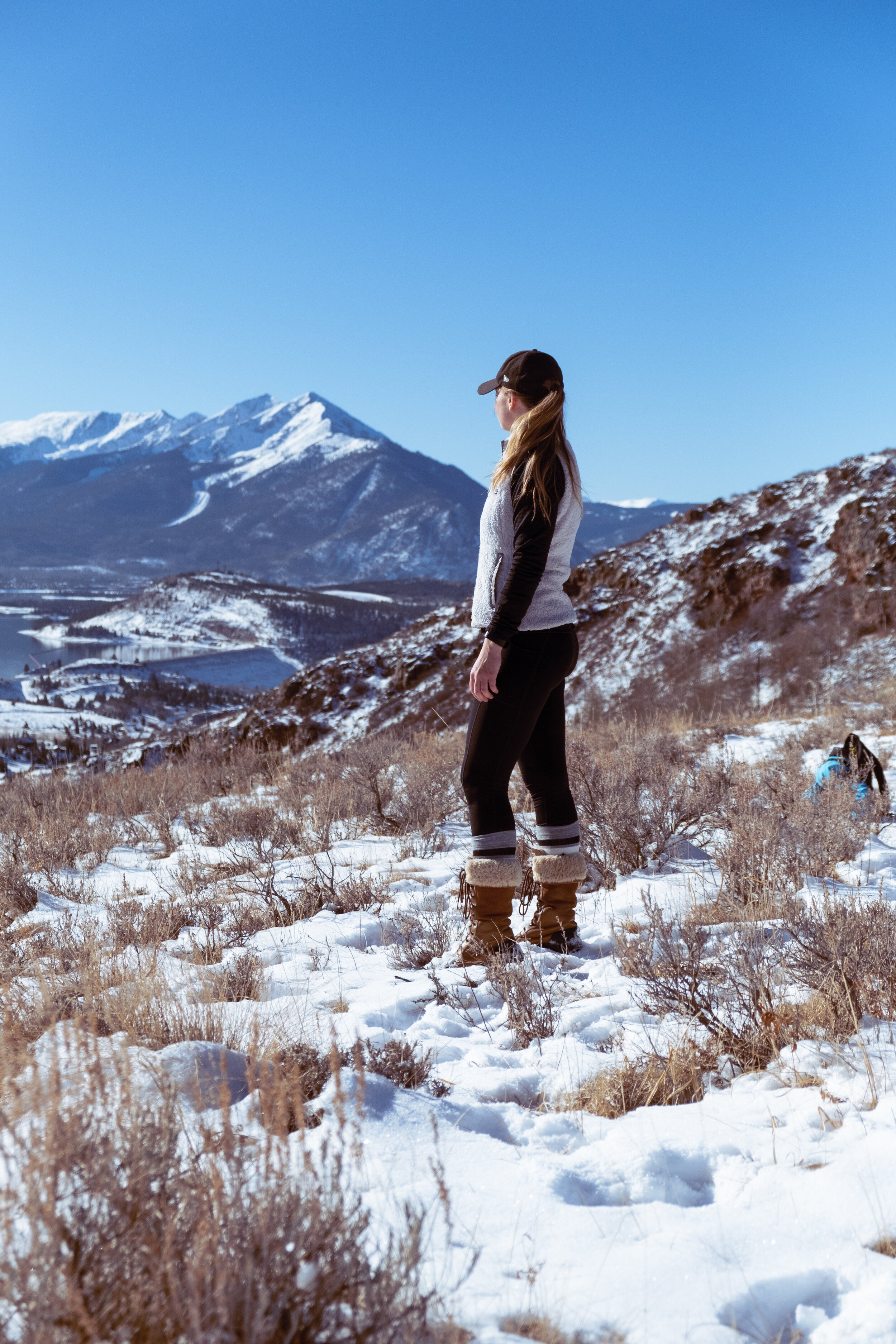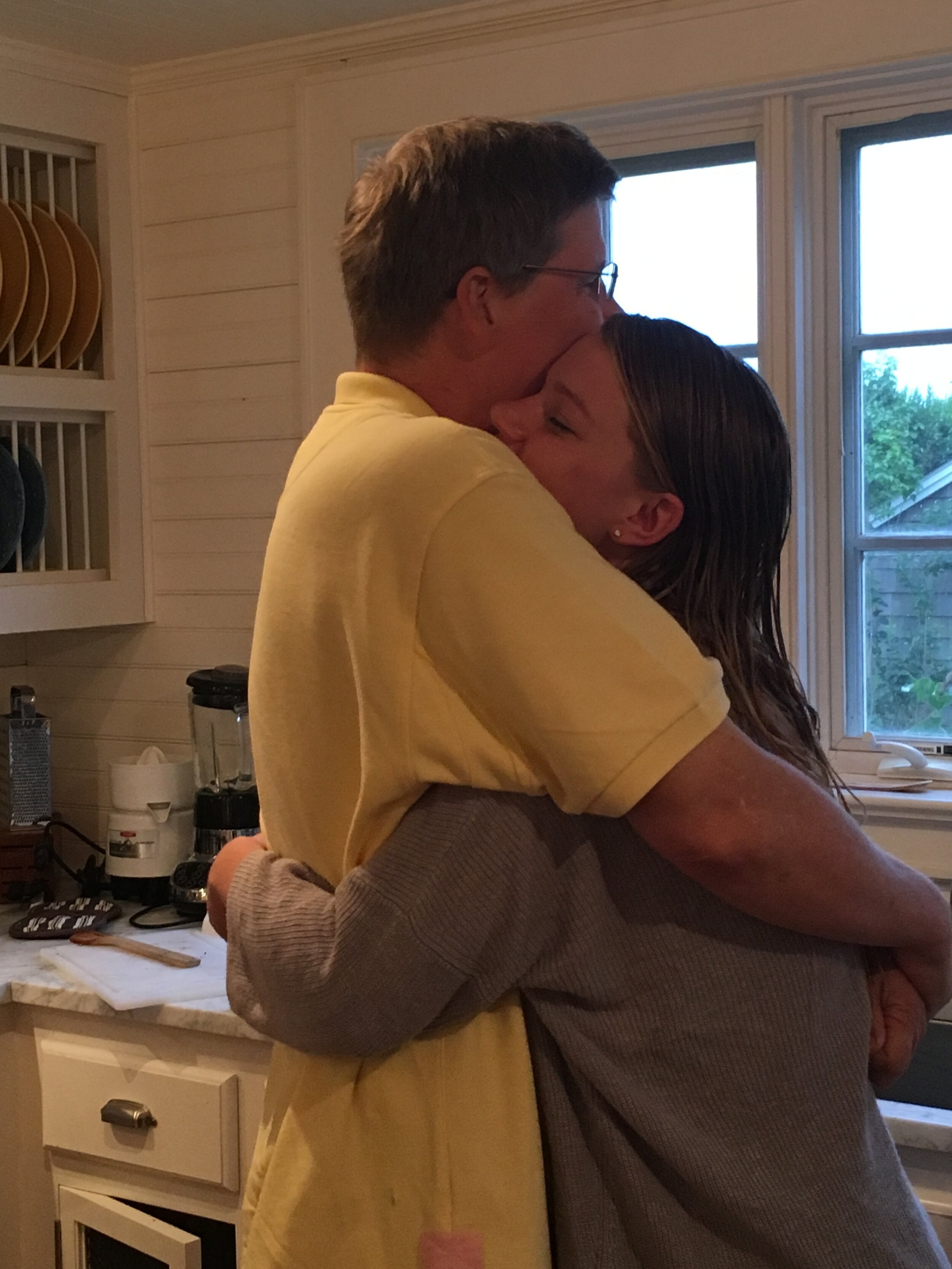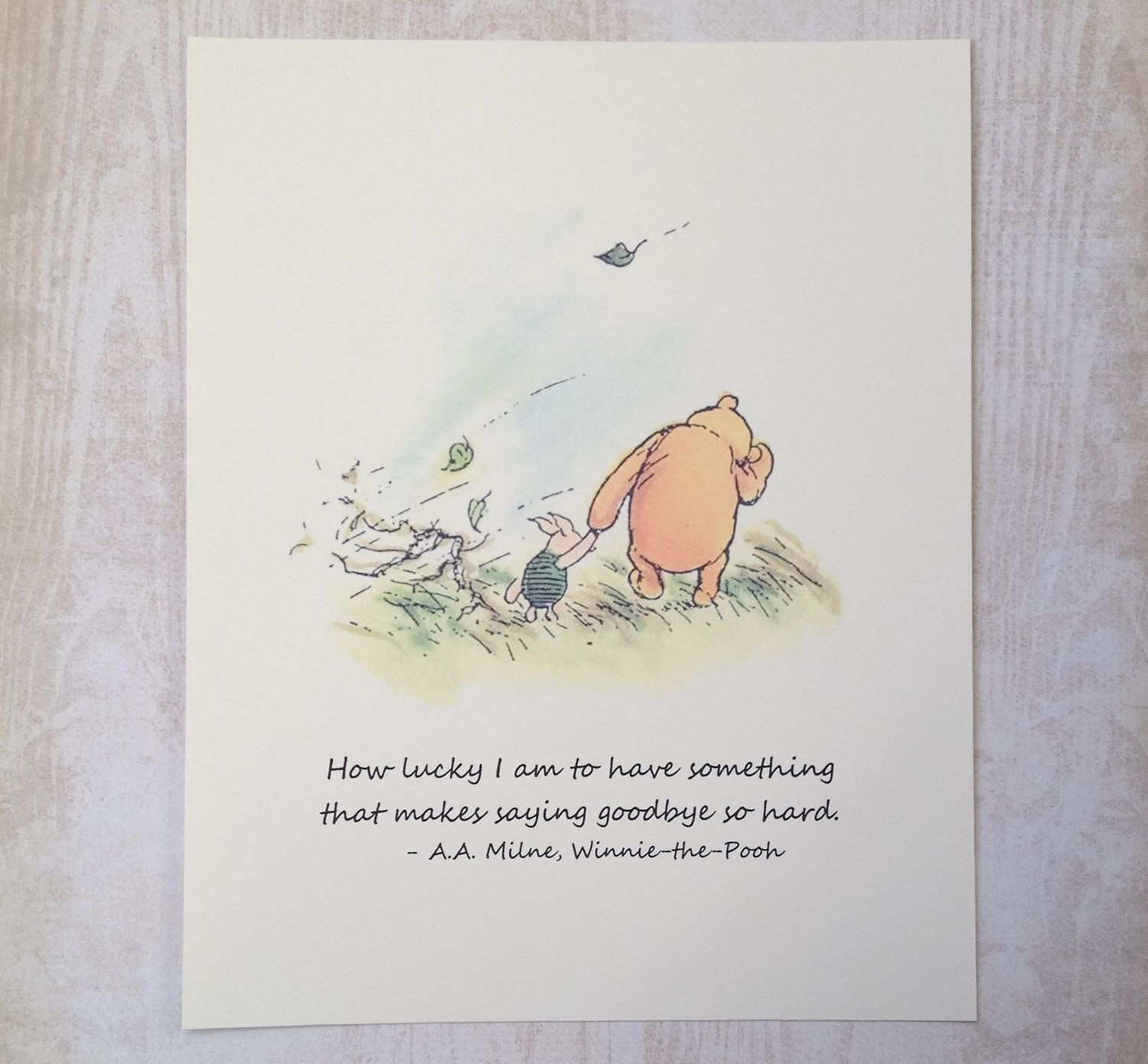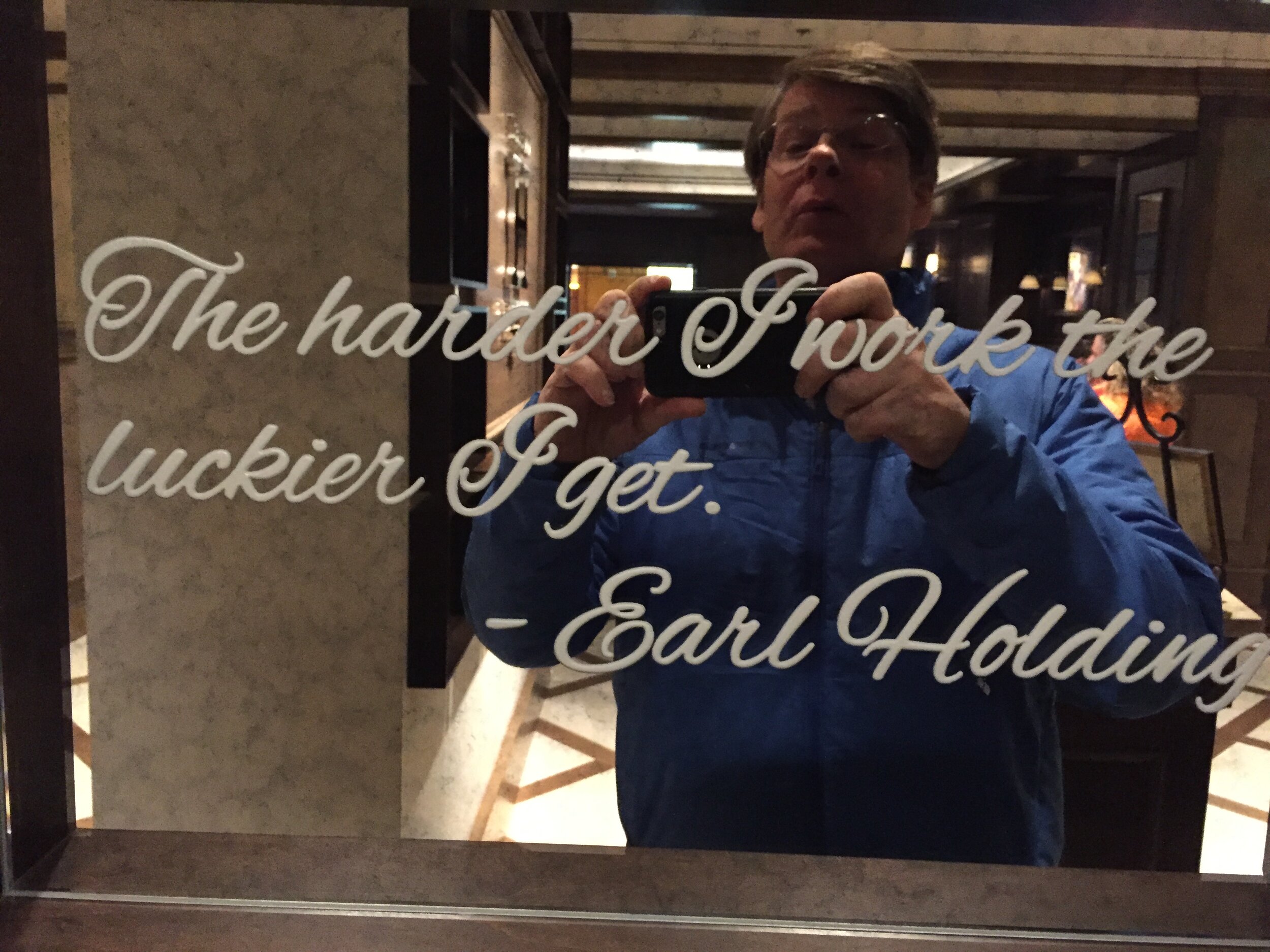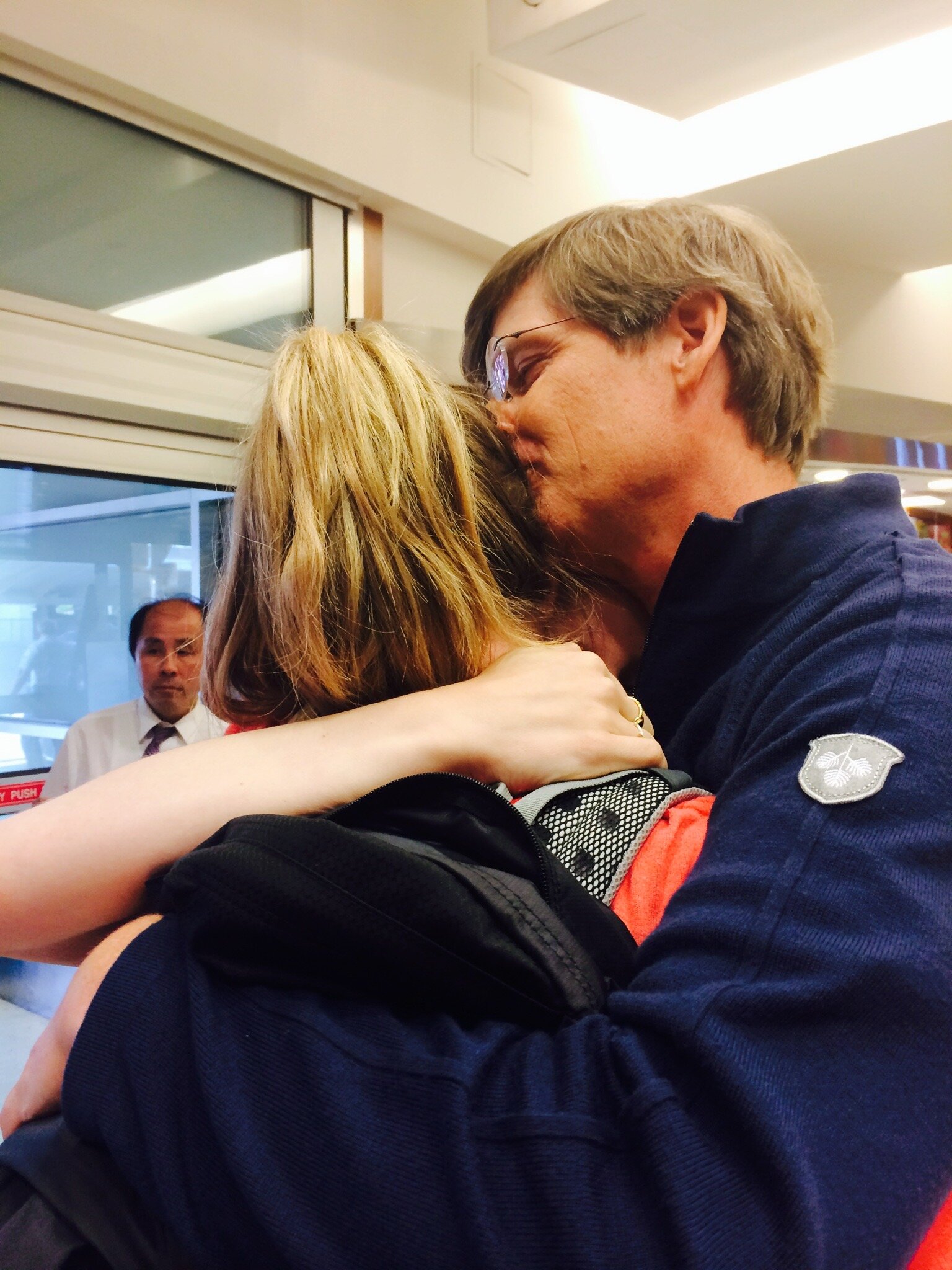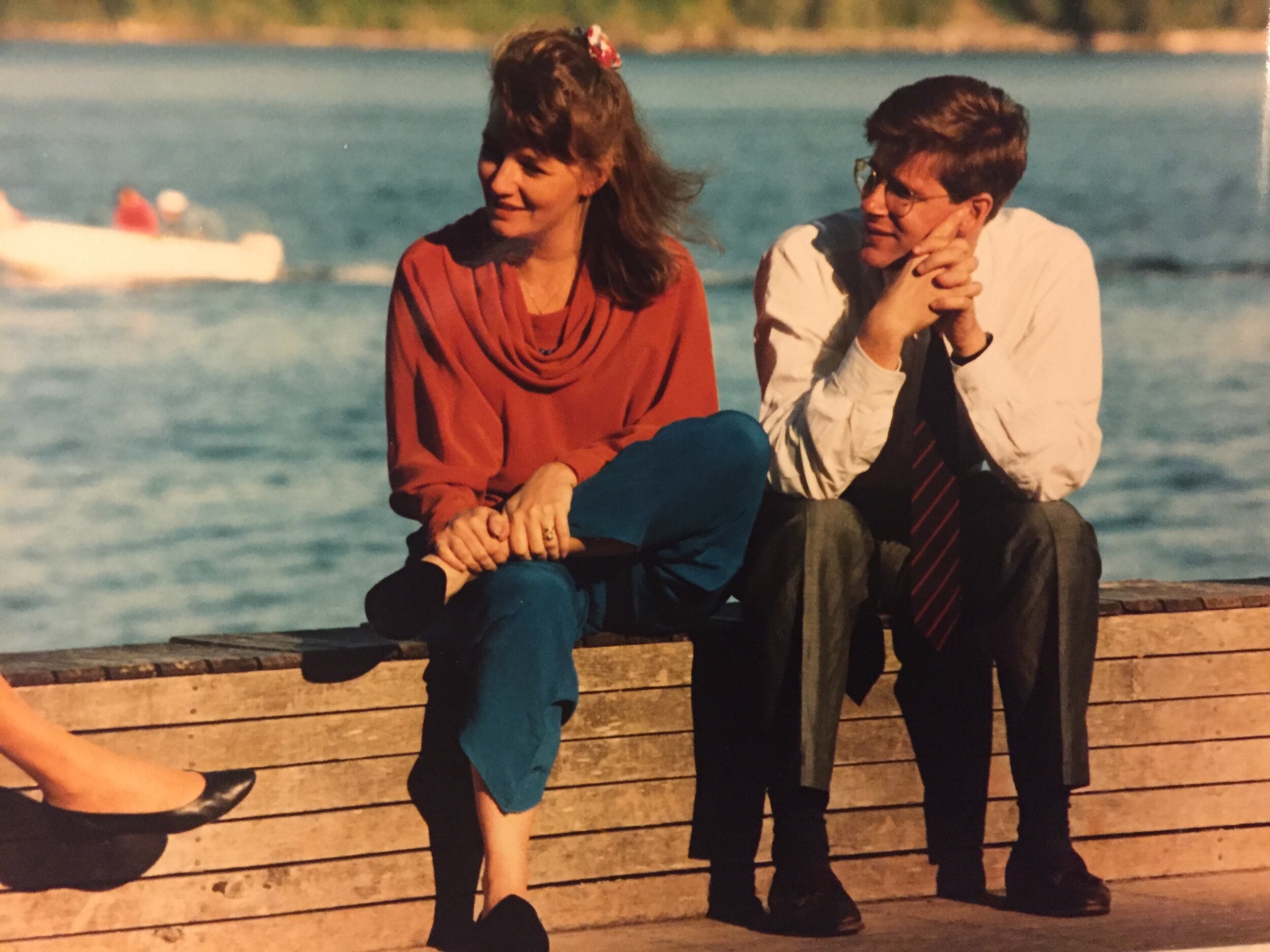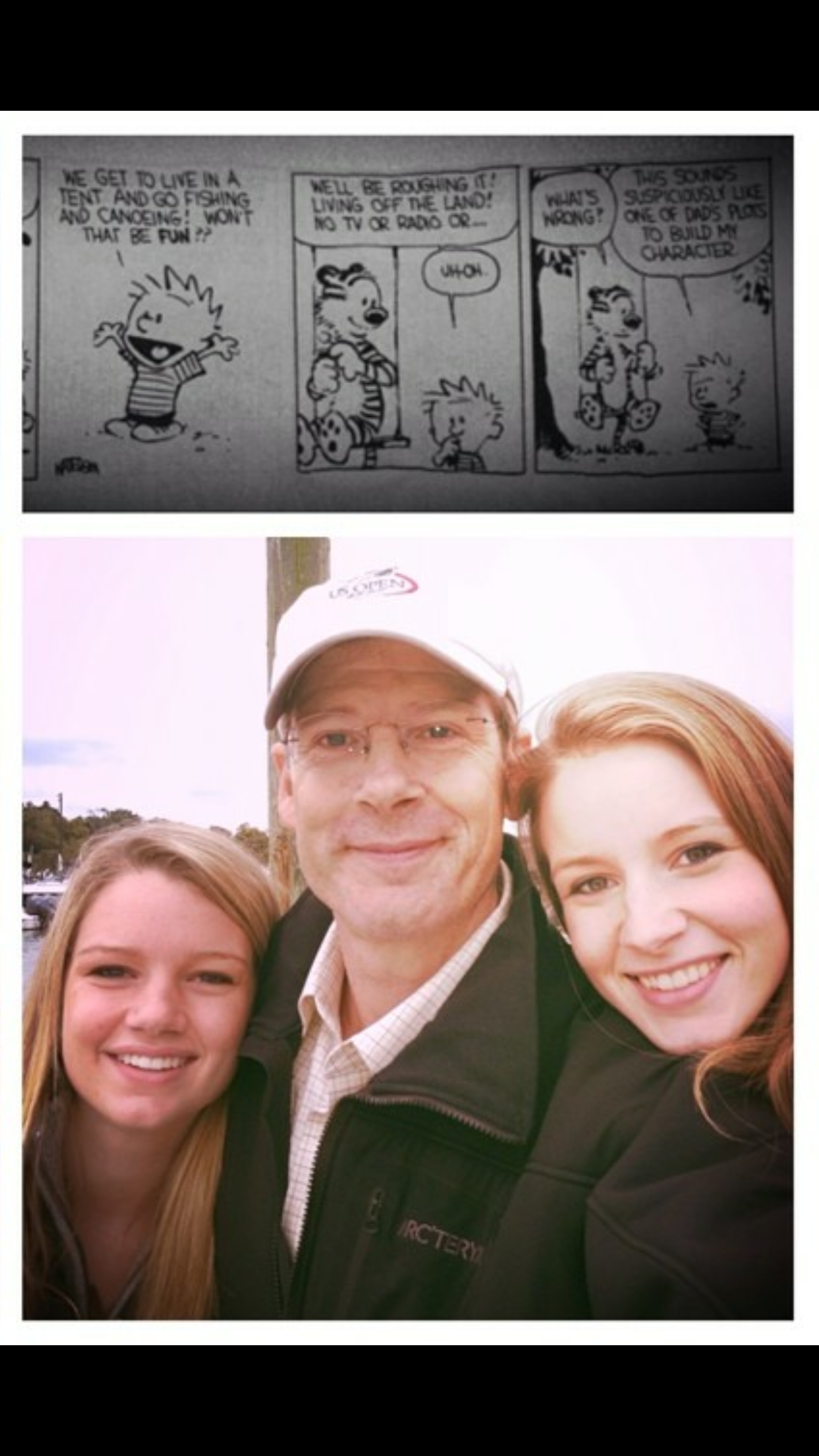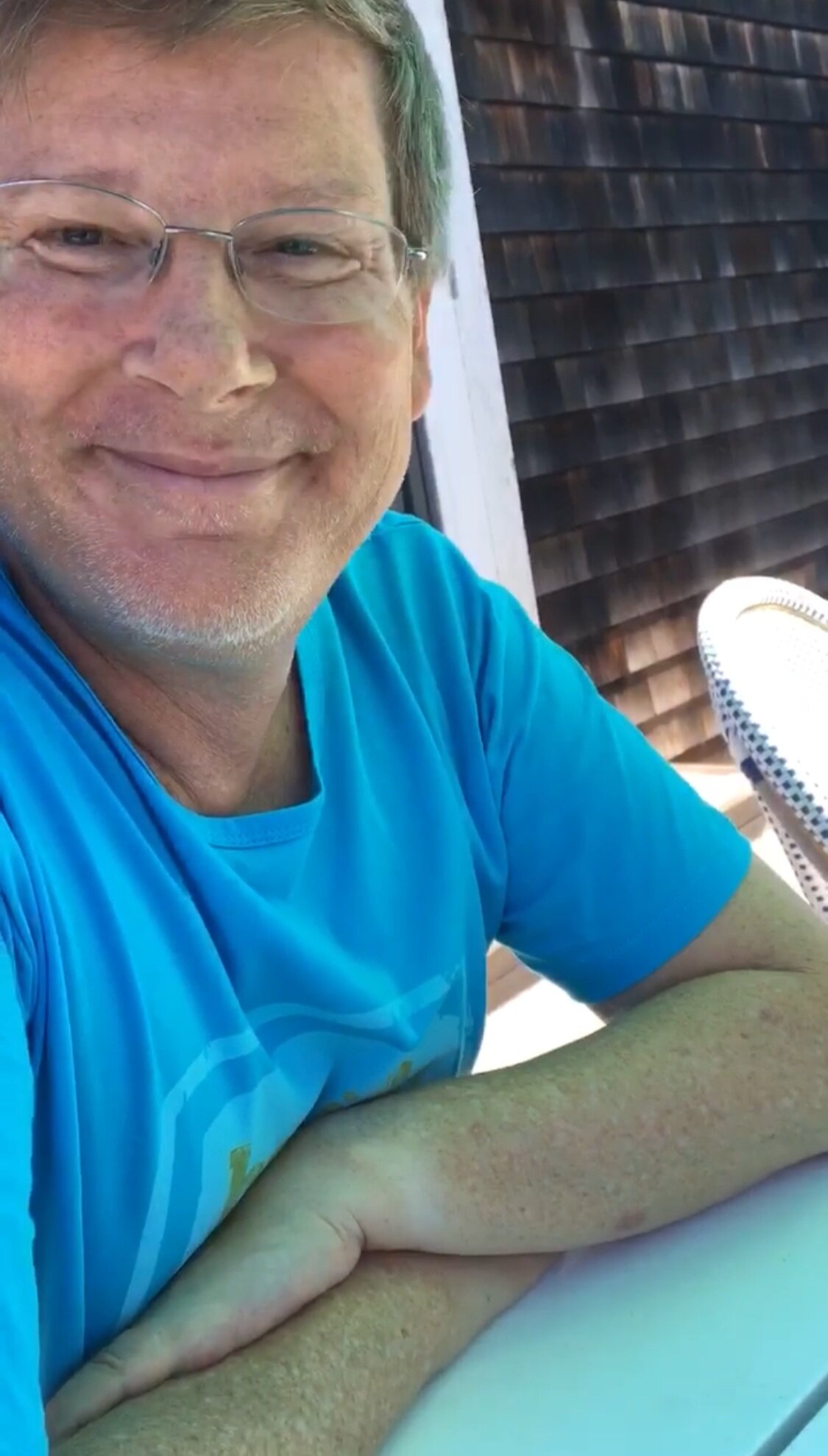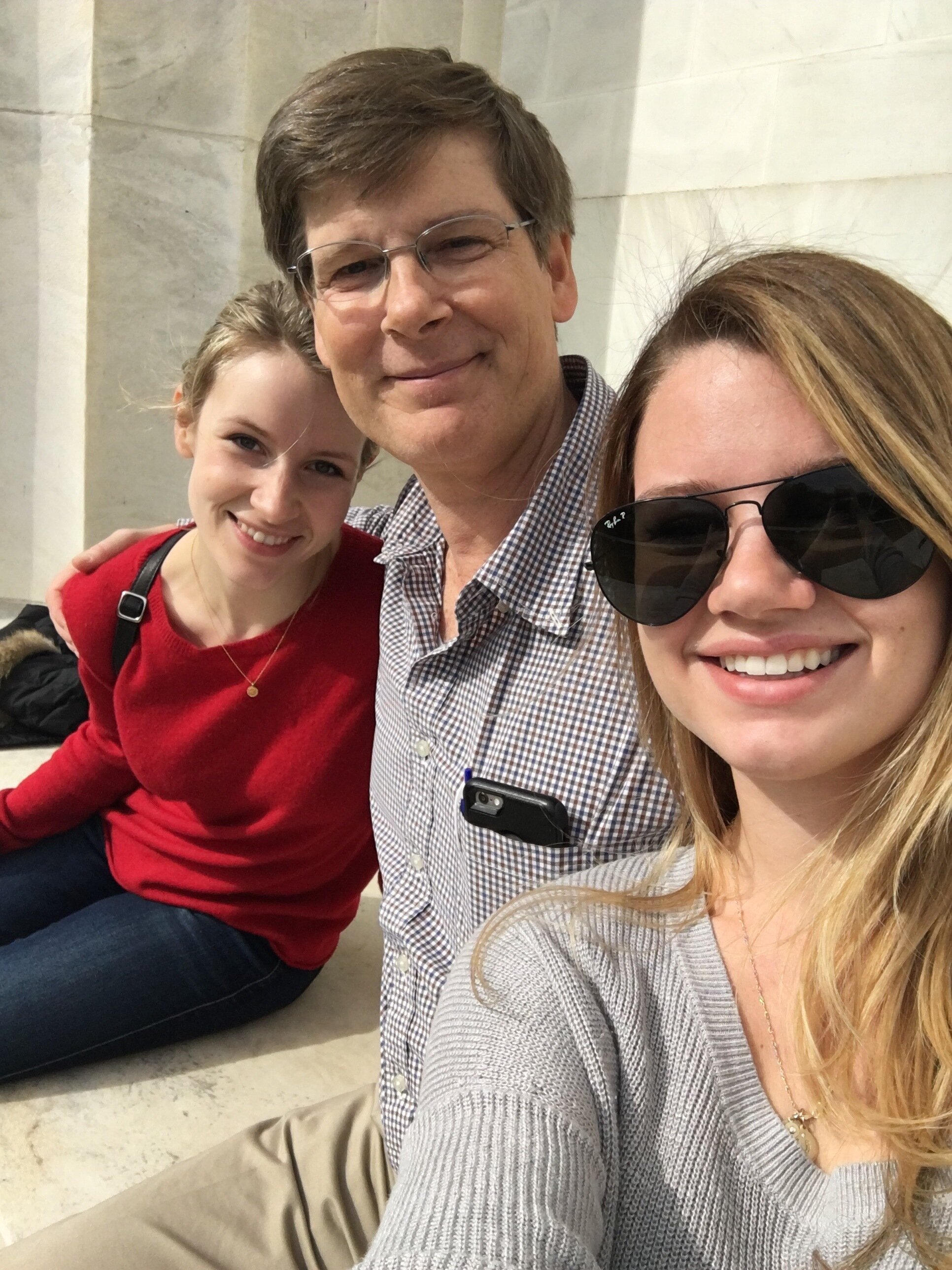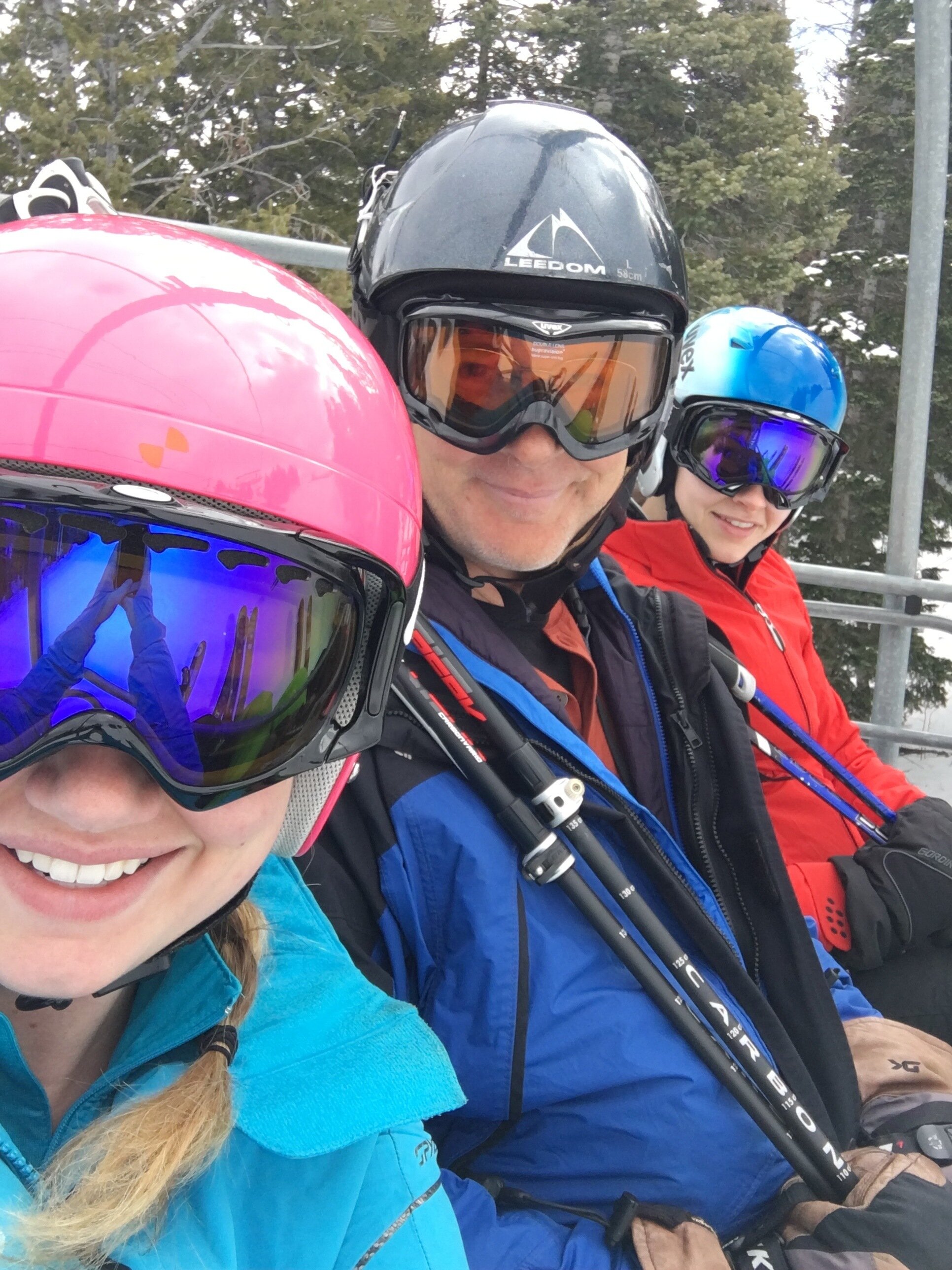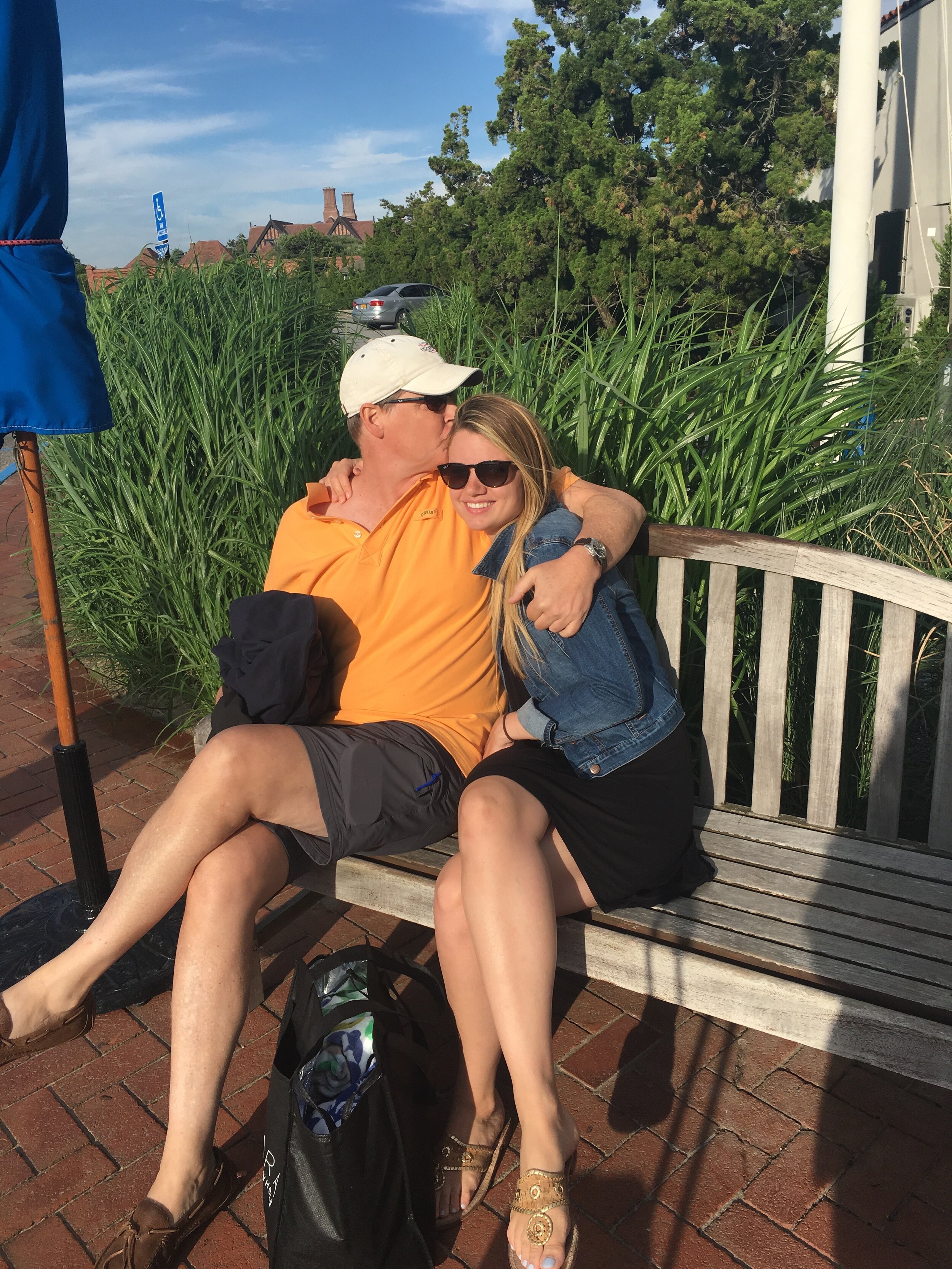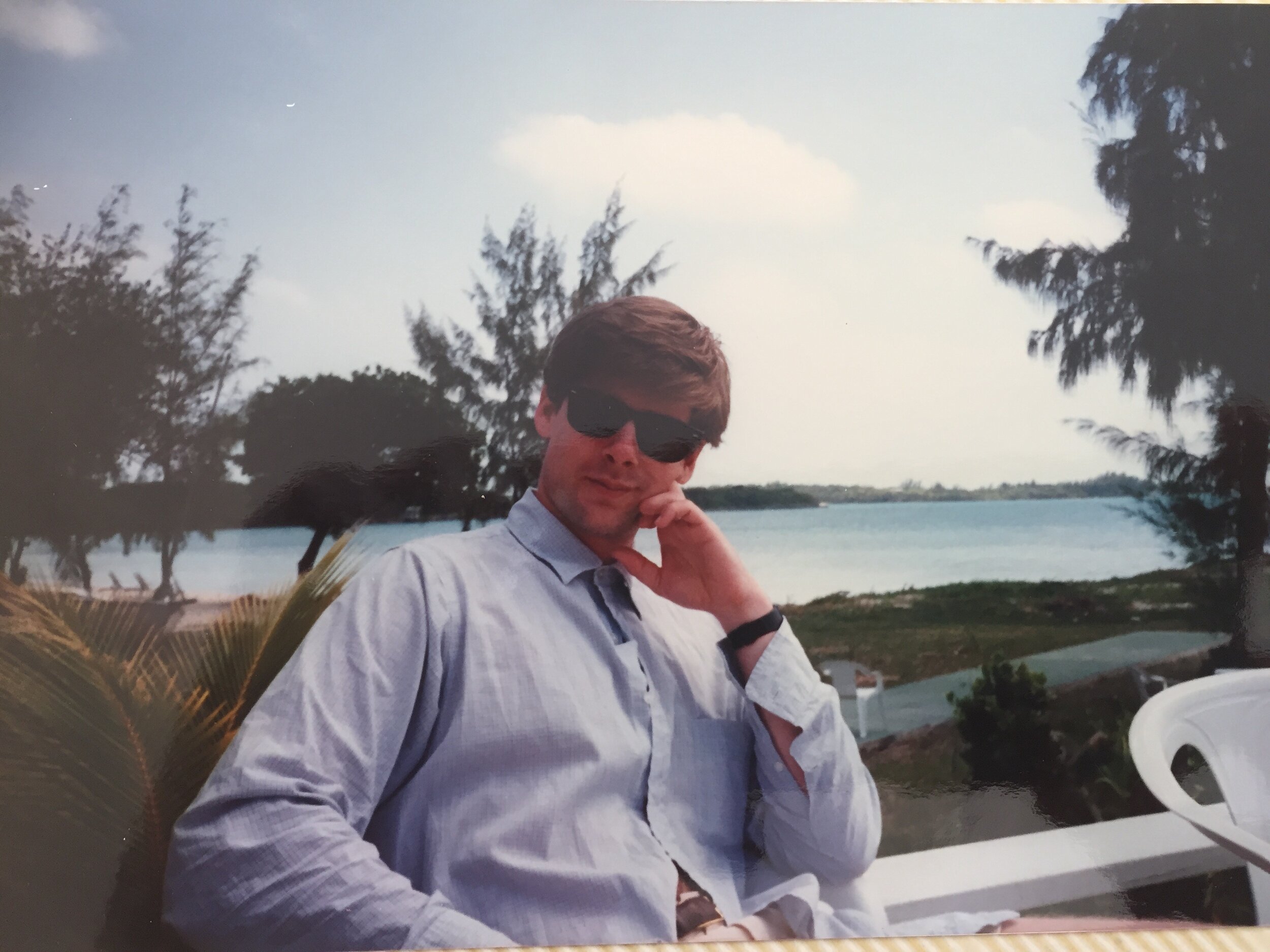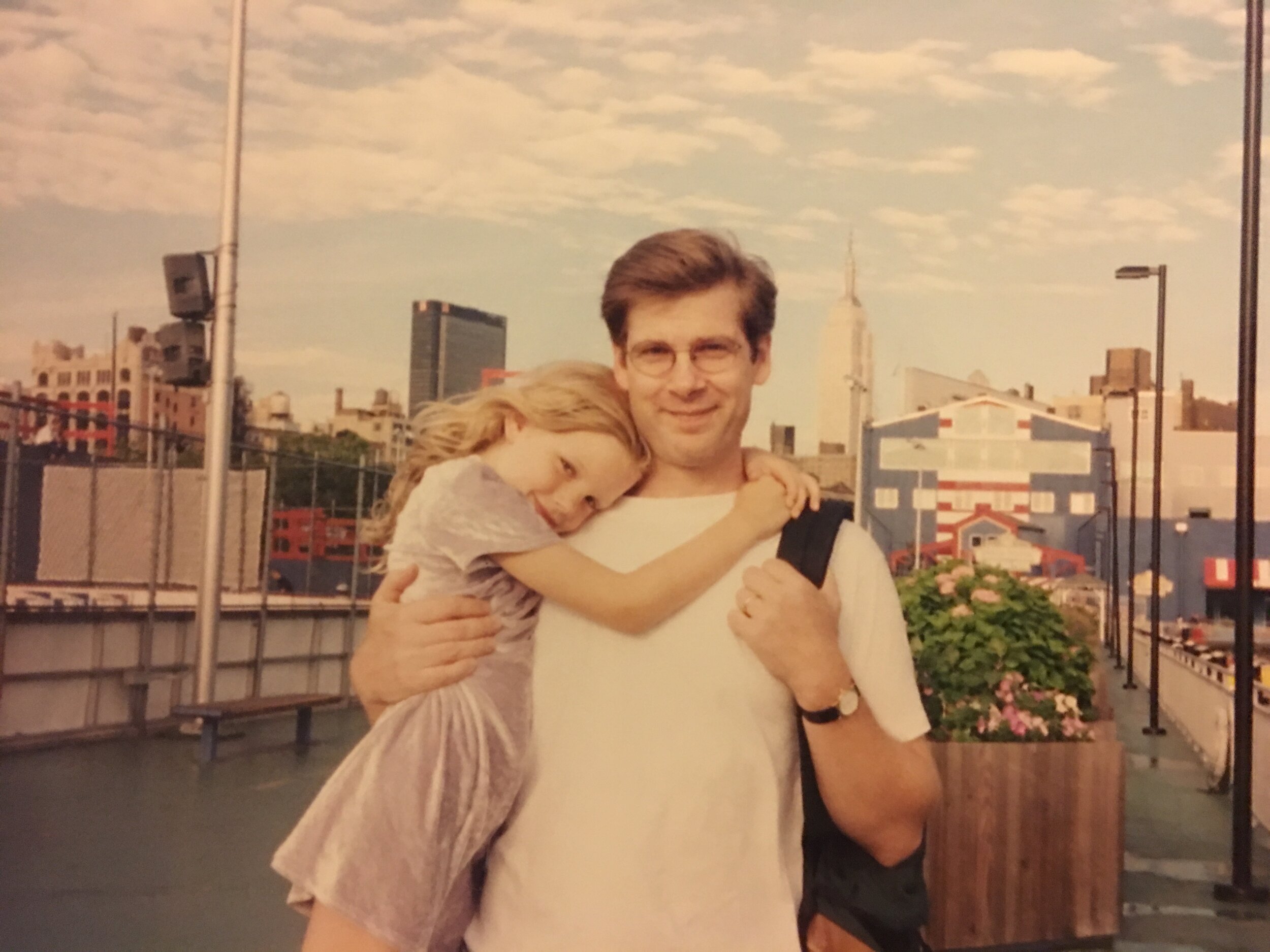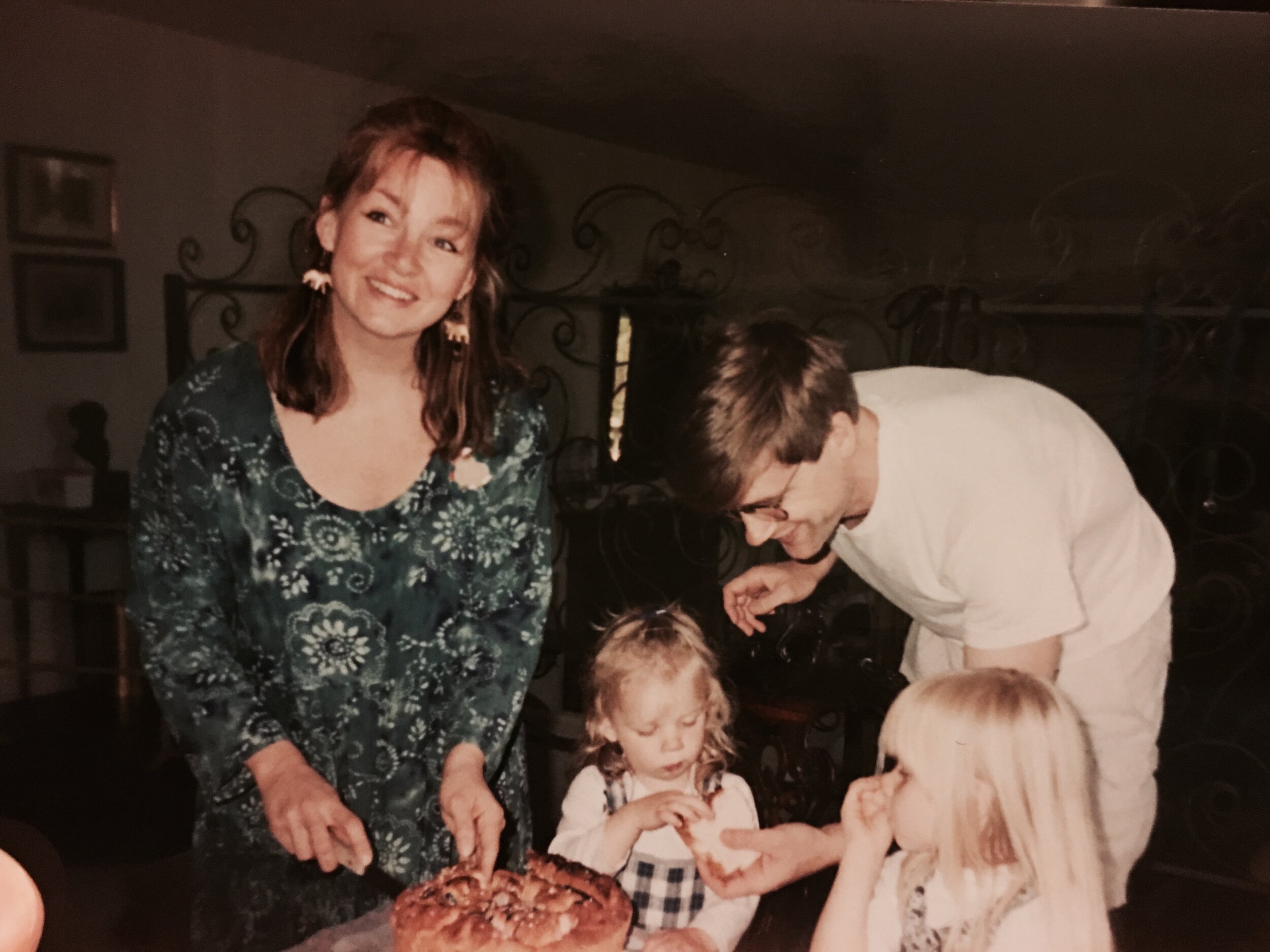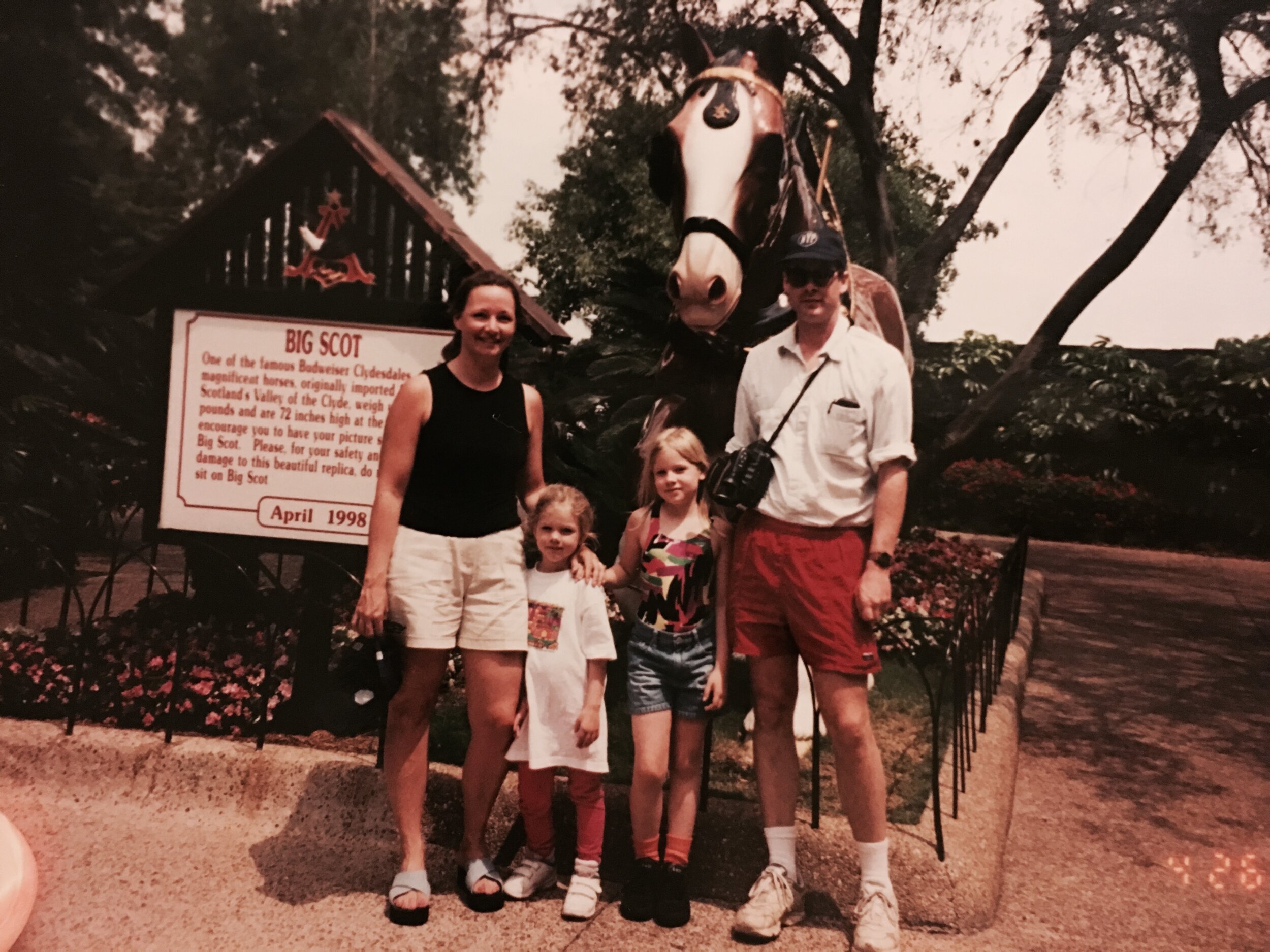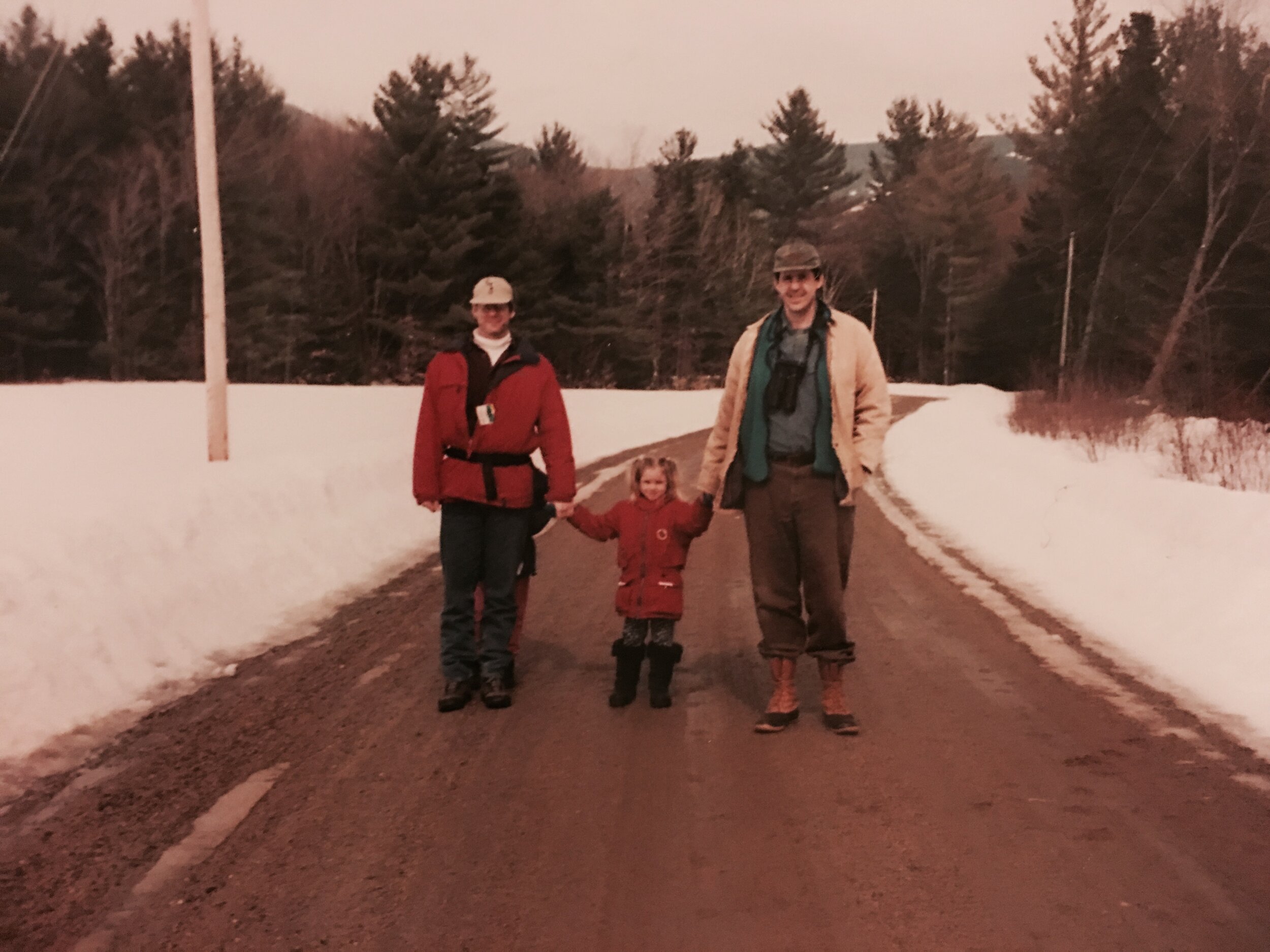What Grief Has Taught Me About Living
It’s been 4 years since I watched my loving, devoted, kindhearted, silly, thoughtful, wonderful Dad take his last breath in a cold, unfeeling ER room in the basement of Sloan Kettering.
4 years since I heard him say, “I want to die” and knew it to be the kindest thing I could ask for him.
It broke my heart.
And from that day on, grief became a constant companion and the most unexpected teacher.
Grief Can Teach Us How to Live (If We Let It)
My dad teaching my sister how to make a proper spit ball
Two days before my dad died, we lost my Grandpa (his father— Henry Sears Lodge Sr.) unexpectedly. One of the last things he said was, “I really think Harry’s gonna make it.”
We never told my dad. He was fighting for his life, and we were scared the grief would overtake him.
Since then, grief has been a perpetual fixture of my life.
It isn’t always at the forefront, but it’s ever-present.
All I have to do is look at it, acknowledge it, and it feels like a gasp of air when you’re plunging into ice cold water.
Painful, but alive.
I never thought I would be someone who lost a parent young—I still can’t identify with that person. It’s almost as if my brain says, “no, that can’t really be me. That tragedy happened to someone else.”
But as sad and heavy as my heart feels, it’s undeniable that, hidden in the tangled web of grief are pearls of wisdom. Within each one is a lesson for living, a message on how to make the most of our time on earth, if only we stop squeezing our eyes shut for fear of the pain, open our ears, and listen.
Because it is the dark that teaches us to appreciate the light.
After all, we only appreciate Spring so much because of Winter, right?
And the same is true of life.
If it went on forever, we would stop appreciating it and start taking it for granted.
And for so long before my dad died, I was taking my life for granted.
I wasn’t truly awake. I was going through the motions, ticking off Society’s boxes that defined a “Good Life.” I was living it for someone else—chasing the job, the promotion, the partner, the white picket fence—in the hopes that it would make me happy. Because it should make me happy…right?
That’s what we’re taught at least, until something happens to shake us awake.
And once we are awake, we understand that we can never be truly fulfilled, living life on someone else’s terms, because we’re never truly living, not really—not at our core.
The Dangers of the “Some Day” Fantasy
It was grief and death that taught me that I have no time for “The Path.”
I have only the time allotted to me -- which could be 100 years, or 100 breaths more,
And I need to spend that time in ways that are meaningful to me.
In order to be happy or content; in order to live and die without regrets;
In order to reach the end of my life, whenever that may be, and to look back with a sigh of contentment on all the people I loved, the experiences I shared, and the impact I had;
In order to do that...
I needed to figure out what living means to me.
So that’s what I did, all those years ago after losing my dad.
In the depths of my grief, it felt like my life had been torn down to its bare bones. Everything stripped bare and its value laid out nakedly clear.
What I thought I knew...or, at least, the rules I thought I was supposed to play by—they were all wrong.
losing my dad at 23 taught me that the rules were bullshit.
Grief Is Like The Matrix
What was the promise of working hard at a job I didn’t like so I could retire “some day” and be happy?
What was the value of sacrificing the time that could be spent with loved ones, helping people, doing the activities that bring me joy?
Why not roll them all into one??
My dad died at 57. Thankfully, he loved his work as a doctor, every single day. But if he hadn’t—if he had hated how he spent his days for his entire adult life, saving up for the promise of really, finally living his life “some day” when he retired...
He would have had two good years to enjoy his life the way he wanted to (if he was lucky and retired at 55).
That’s what my dad’s friend did, and as he was dying in hospice, my dad said to me without second thought, “I’m so glad this is happening to me and not [his friend].”
That shook me, deeply.
4 years later, those 11 words have guided my life choices maybe more than anything else.
Because death teaches us how short and precious life is, especially when we lose someone we love so much at such a young age. Some illusion of “forever” is shattered within us like the thinnest pane of glass.
And from then on, I knew things were different.
It was like The Matrix: I had seen Life for what it really was, and Morpheus (Life) was offering me the choice between the Red Pill (go back to sleep, push down my real dreams, and go back to slogging in a 9-to-5 that wasn’t fulfilling for the promise of “some day” being happy) or the Blue Pill (wake up, reconstruct my life in a way that was meaningful to me, and fight like hell to make it happen so I can feel happy and fulfilled with how I spend all of my time, based on the intentional life I’m living).
So I took the Blue Pill.
Because that Knowing--waking up and really seeing my life for the first time--meant I couldn’t un-know what I had now discovered: that I wasn’t an active participant in my life. I wasn’t steering the ship. I was a passenger, my course was set based on someone else’s arbitrary rules of what makes up a “good life.” I didn’t want to follow Society’s Path anymore. I couldn’t check the boxes that someone else had defined for me, because they weren’t meaningful to me. And I was fortunate enough to be able to change that.
How to Build an Intentional Life
But that meant I had to figure out what living meant to me, and then set out to do it intentionally.
So I sat down and asked myself:
“How do I want to feel in life?”
The answer came: alive, aligned, and deeply in love with life.
“Okay, what in my life makes me feel that way now?”
The answer snapped into my brain immediately:
“Traveling.”
But it wasn’t the novelty or glamor of travel that appealed. For me, it was the way traveling reminds us that this one life we get to live is an unbelievable miracle. By sharing experiences with strangers, our worlds are broadened. We become more empathetic, more connected, more caring. By learning about new cultures, we learn more about ourselves, about the world, and about all the many ways there are to live a good life. By meeting people from different walks of life, we learn to respect what is different, not to fear or reject it simply because it is unfamiliar. By witnessing the natural wonders that vary across the globe, we remember what a happy accident this world is, floating among the universe—and we understand the value of preserving it.
Travel reminds me that there are so many different ways to live a good life, and to stay in one place is to experience only one viewpoint on the complex and diverse experience of human existence.
But in all honesty, it took me a while to accept that it would be possible to infuse this into my life. It felt self-indulgent. Impossible. Out of reach. It scared and worried me. Because to integrate one of the greatest sources of fulfillment (outside of my relationships) into my life, I knew I would have to deconstruct the one I was living:
• Leave the desk job, with good benefits and coworkers I loved.
• Move out of the first home I’d ever lived in alone.
• Leave the city where I’d built my community
• Let go of some of the dreams that no longer served me
I knew (and still know) that I was incredibly fortunate to have all those things. That I come from extreme privilege and have the benefit of being able to ask these questions, and seek this life. And while I appreciate them for what they were, I knew the ladder I was climbing didn’t lead to anywhere I wanted to be--and I had the tools to change it.
It’s kind of like Eat Pray Love, when Julia Roberts blows up this “great life” she has and her best friend says:
“This happens to people: they fall in love in their 20s and get married, they do the white picket fence thing in their 30s, and somewhere in there they realize “this is not for me anymore.” They can’t just check out. You have family and friends here who love you.”
Julia Roberts answers:
“I need change. Do you feel my love for you? My support for you? No, there’s nothing! I have no pulse! So I am going to Italy. I used to have this appetite—for food, for my life, and it is just gone. I want to go someplace where I can marvel at something: language, gelato, spaghetti, something.”
And that hit me in the gut. Because I wasn’t an active participant in my life anymore. I was so sad and so broken, I couldn’t be a good friend. I couldn’t love people the way they deserved. I was a zombie, trudging into work, checking the boxes, and collapsing into a puddle of sobs as soon as I got home and closed my apartment door. When I wasn’t actively grieving, I felt numb inside. I didn’t want to wake up in 30 years and realized I hadn’t truly lived my life -- I had just done what I was supposed to, and it never made me happy.
And so I set out to marvel at something.
I set out to build this unconventional lifestyle centered around the things that make life meaningful to me: traveling, meeting new people, loving and appreciating them, helping them, and doing work I loved (that felt like it mattered in the world more than my desk job writing memos)--and I wanted to do it intentionally, brick by brick, in the hopes that it would heal me.
My loss became my why.
And travel is the conduit that reminded me of the beauty of living. It continues to remind me that there is so much to learn, so much to experience, so many people to meet before my time is up.
That there are so many different ways to live a good life — so much to share with others, and if we only ever spend our lives in our little corner, we’ll never know any different.
That this world is strange, and beautiful, and complex -- from the people to the nature in it.
That there is so much to marvel at, so much to give back, so much depth to living.
Building this life makes me feel more alive (most days).
It helps me make sense of the grief and meaning of the mourning.
It reminds me to stop living for some day, and instead to live for today.
In the past 2 years, because of this intentional shift, I’ve lived more than I ever have, and I’ve loved more deeply, even as I grieved.
There has been more pain, more loss since then. But there has also been immense gratitude, love, growth, and appreciation.
The human experience is not binary, and emotions are complex — we can coexist with the light and the dark. Happiness and depression. Worry and confidence. Love and loss.
Which brings me to…
If Grief Has Taught Me Anything These Past 4 Years, It’s This:
Take the time to say the nice things you’re thinking about people. You never know what it might mean or when you might not get to say them again.
On that note, the cliches are true: Life is incredibly short. Don’t take it for granted.
Be and spread more love while you’re here. The world can always use more of it.
Be a duck — let the little things roll off your back. The little annoyances don’t matter. It’s easy to get caught up in the trivialities of everyday life (“he cut me off in traffic,” “she never texted back”) but life is too short to waste time on the petty little things. All we can do is make the most of the time that is given to us.
You can do hard things, and they will make you stronger. As my Dad would say, “it’s character-building.”
You will survive the things you most fear. In fact, they may even become a catalyst for positive change, even if it doesn’t seem like it. Don’t waste your time in the present torturing yourself with thoughts of a future that you fear, and which may never come (and if it does come, it may not be as bad as you expect).
Be as present as you can, as often as you can. Life is happening now. The past is for learning, the future is for planning. Everything else is here and now.
Don’t waste your life away wishing things were different — if you’re not in love with the life you’re living, change it as best you can, with what you have.
Don’t take for granted the little moments that make up a life, in between the big milestones you’re chasing.
Find joy in the little things, every day. A flower, a stranger, the sun rising again, anything. Start making gratitude lists.
Be a force of good that people remember long after you’re gone. 800 people showed up to my dad’s funeral because he cared about others and went out of his way to be kind and help them. That will always leave an imprint. “At the end of the day people won't remember what you said or did, they will remember how you made them feel.” - Maya Angelou
Remember the anniversaries of your friends’ losses. Put it in your calendar. A short text on the anniversary of someone’s passing means more than you might think.
Give yourself the grace to grieve how and when you need to.
It’s up to each of us to think intentionally about our lives and our values, and do everything in our power to align the way we live with those values.
Help people as often as you can. Whether it’s a smile, a complement, a donation, volunteering, buying from a small business, organizing, calling to check in, you name it. We’re all in this together — At the end of the day, we’re all human, and there is no difference between your suffering and mine.
Be kind and expect the best of people, and they just may surprise you. As my Dad would say, “9 times out of 10, if you give them the chance, people will be good.”
Get outside and marvel at nature. At the incredible, perfect order of this world we exist in. Do what you can to save it. Look at the stars, spend time trying to fathom that the light you see now travel over light years to reach our planet. That our existence is but a tiny blip on the timescale of the universe.
And finally, make the most of this life you are given. We live on a desolate little rock, floating in the middle of a universe we don’t fully understand, which happens to be the perfect distance from a ball of fire that sustains life — not so close to burn us, not so far to freeze us. You have stardust in your veins. And the odds of you being alive, in this world, at this time? Virtually zero. Remember what a miracle it is to be alive, and do the things that make miracle feel real as often as you can (for me, that’s travel).
And when grief comes to call, as it does for all of us, remember that it also holds light while it holds the dark.
When you’re ready, let it be your guide.
Grief showed me how to live the values my dad taught me.
And it’s the teacher that showed me how to make meaning of my loss.
So to my dad: thank you for being such a caring and loving father, a good role model and human being, a sage advice-giver, a wise-cracking confidante, and for reminding me that life can be good, even when it is hard. Thank you for the character-building, for all you taught me, and for all you continue to teach me.
I love and miss you every single day. I would give anything to have you back.
In loving memory of Henry Sears Lodge, Jr.











